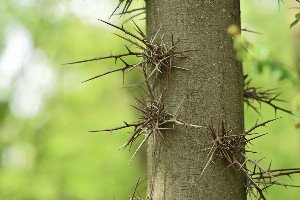Saprudin Saprudin, Perani Rosyani, Bagas Mahendra Putra, Al Haura, La Juanda, Vivi Ainun
Use of Expert System in Determining Water Management in Agriculture with Methods: Fuzzy Logic and Rule-Based Decision Making
Introduction
Use of expert system in determining water management in agriculture with methods: fuzzy logic and rule-based decision making. Develop an expert system for agricultural water management using Fuzzy Logic & Rule-Based Decision Making. Enhance crop yield, sustainability, and assist farmers with precise water recommendations.
Abstract
This project aims to develop an expert system to support agricultural water management using Fuzzy Logic and Rule-Based Decision Making methods. This system is important for improving agricultural yields and environmental sustainability, especially with the increasing demand for food and the impacts of climate change. Data was taken from Kaggle, including information on soil conditions, temperature, and rainfall. Data processing includes missing value removal, outlier detection, and splitting the data into 80% training and 20% testing. Fuzzy Logic was chosen because it is able to handle data uncertainty and provide accurate output regarding crop water requirements, while Rule-Based Decision Making utilizes expert knowledge-based rules for decision making. Simulation results show that the Fuzzy Logic model provides recommendations for water needs according to actual conditions, with high responsiveness to soil moisture and temperature. The system is expected to be a tool to assist farmers in decision-making, increase agricultural productivity, and support water sustainability. This research contributes to the development of expert systems in agriculture and natural resource management based on modern technology.
Review
This paper presents a timely and relevant endeavor to develop an expert system for agricultural water management, addressing critical issues of food security and environmental sustainability in the face of climate change. The proposed system effectively combines Fuzzy Logic and Rule-Based Decision Making methodologies, offering a robust approach to managing the inherent uncertainties and complexities of agricultural data. The overarching aim to provide a decision-support tool for farmers, ultimately leading to increased productivity and sustainable water use, aligns well with current global agricultural challenges and technological advancements. The methodological choices are well-justified. The selection of Fuzzy Logic for its capacity to handle imprecise and uncertain data, characteristic of environmental parameters such as soil conditions, temperature, and rainfall, is particularly appropriate. This is complemented by a Rule-Based Decision Making component, designed to integrate valuable expert knowledge into the system's recommendations. The abstract indicates thorough data preprocessing, including missing value removal and outlier detection, from a Kaggle dataset, which suggests a diligent approach to data quality. The reported simulation results, highlighting the Fuzzy Logic model's ability to provide water recommendations sensitive to soil moisture and temperature, are promising and suggest the system's potential for practical application. While the abstract provides a compelling overview, a more detailed elaboration in the full paper would strengthen several aspects. Specifically, further information on the explicit integration strategy of Fuzzy Logic with Rule-Based Decision Making, rather than just their parallel application, would be beneficial. Clarification on the validation metrics used to determine "high responsiveness" and "recommendations according to actual conditions" is also crucial for assessing the system's efficacy. Despite these minor points for elaboration, the research makes a valuable contribution to the field of expert systems in agriculture, offering a significant step towards technologically-aided sustainable natural resource management.
Full Text
You need to be logged in to view the full text and Download file of this article - Use of Expert System in Determining Water Management in Agriculture with Methods: Fuzzy Logic and Rule-Based Decision Making from Formosa Journal of Science and Technology .
Login to View Full Text And DownloadComments
You need to be logged in to post a comment.
Top Blogs by Rating
Beyond the Facade: Unearthing...
By Sciaria
Electro's Hidden Frequencies:...
By Sciaria
Nature's Biohackers: How Life...
By Sciaria
Favorite Blog
Beyond the Facade: Unearthing...
By Sciaria
Embrace the Uncomfortable Mirr...
By Sciaria
Mycorrhizal Networks: Unearthi...
By Sciaria
Related Research
Ilmastohuolet kalpenevat koillisväylä-optimismin rinnalla venäjän ympäristöuutisissa
A comparative study of science unification models at universitas muhammadiyah yogyakarta (umy) and universitas ahmad dahlan (uad)
Influence of chromium as carbide forming doping element on the diamond retention in diamond tools
Share
Notice Board
- Внутренняя динамика сети, связанная с аномальным дельта-ритмом при нарушениях сознания (краткий обзор)
- HUBUNGAN ANTARA KOMPETENSI DENGAN KINERJA TENAGA ADMINISTRASI DI RUMAH SAKIT JIWA DAERAH KOL.H.M. SYUKUR JAMBI
- TENSIONS OF DISCOURSE IN MUḏAKKIRāT MIṯLIYYA BY FāṭIMA AL-ZAHRā’ AMZKāR: A SENSATIONAL EXAMPLE OF GENDERED REPRESENTATION THROUGH FICTIONAL AUTOBIOGRAPHY




